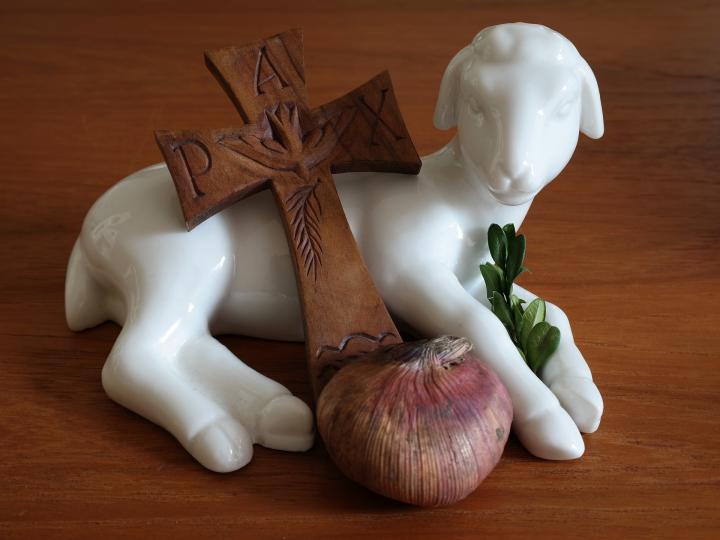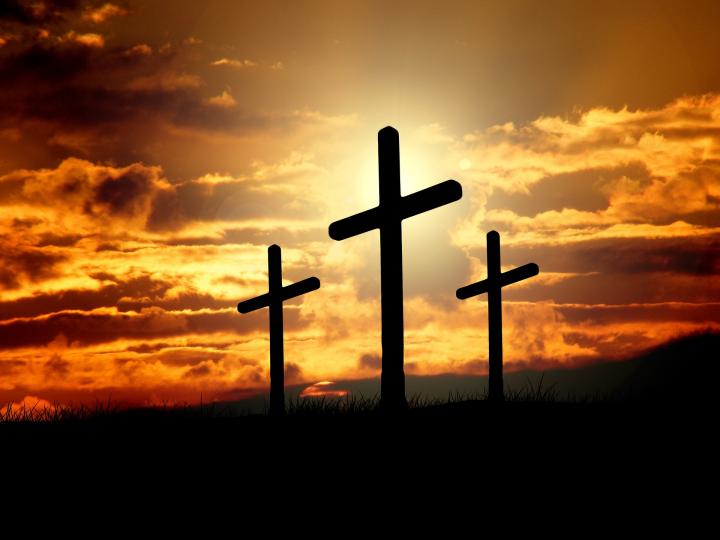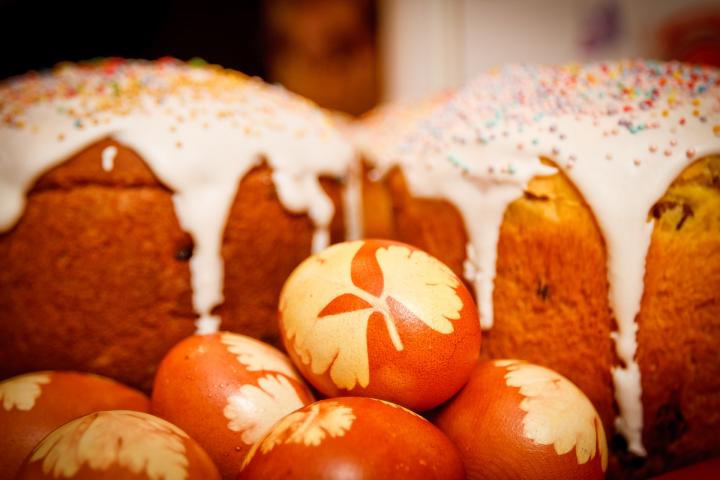
Why Is Easter So Late This Year?

Easter Recipes
ADVERTISEMENT
I have read the explanation of how the date of Easter is determined involving dates of spring equinox and full moons which accounts for the changing date for Easter. What I do not understand is if Christians can agree that Jesus Christ was born on December 25th which never changes then why is there a "formula" which gives us a date for Easter that always varies from year to year? That doesn't make sense to me.
Good question, Penny.......!
Most likely the Church hammered out, what would become the system we now know, via Councils, different calendars over the centuries {Julian, Gregorian}, the Metonic Cycle {Lunar phases recurring on the same dates every 19 years} with their related Golden Numbers, etc.
A question that has occurred to me stems from Easter this year {2022}. As you may know, the Full Moon occurs Sat., Apr. 16, 6:55 PM GMT.
All of Japan, Australia and New Zealand at that time will already be INTO Sun., Apr. 17, violating the rule, "first Sunday AFTER the first Full Moon
after the Vernal Equinox. In those places the Full Moon occurs ON {not after} that Sunday in question.
I have analogously wondered about this rule's effect on the Southern Hemisphere, but I am then reminded how dates such as Mar. 20 & 21 are highly emphasized.......i.e. European oriented. Maybe...just MAYBE...there is an analogous focus for a case like 2022, perhaps the Full Moon time being GMT, possibly GMT + 1.......I don't know.
I believe I learned once, the great mathematician Gauss came up with his own calculation in/circa 1800, which was accurate but for one aspect,
an error picked up a student of his named Peter Paul.......! :)
Again, Penny, thanks for the input. Hopefully someone with far more knowledge than yours truly will enlighten us. Happy Easter !!! :)
Jesus was Jewish, he was celebrating Passover (Pasach) when he was betrayed. Easter follows the Jewish calendar which is lunar based.
Answering your question: "why is there a "formula" which gives us a date for Easter that always varies from year to year?"
Firstly, the author has clearly provided a robust answer to this when he pointed to the fact that the early Christians did not take into consideration the changing Lunar Cycle. This is understandable as many people who do not know that the Moon cycle is never occuring at regular dates every month. With the understanding that the Moon goes through a 19 year rotation is a scientific observation that might be beyond ancient astronomical knowledge. This also was taken for granted by early christians in their calculations of the exact date to celebrate Easter every year. Nevertheless, using the Full Moon to determine the Easter feast is clearly understandable given that in ancient times, the Moon lunar cycle is usually used to remember and determine important dates, which serves correctly as the Bible says that God created the Moon, the Stars and the Sun to determine the Seasons. The famer uses this to determine crop cycle and planting and harvesting seasons as well as the beginning of the raining and dry seasons and so on. That the ancient pagan worshippers used the same observable celestial elements' life-cycle in the Heavens does not make the pagans exclusive owners of these celestial seasonal calculculations and it does not matter whatsoever if our christian celebrations occur the same days or period as did the ancient pagan feasts because it is our divine mandate to re-write the wrong and reclaim these dates forever for the glory of God and His Jesus Christ. We cannot leave these dates for the pagans because they did not create the Sun, the Moon and the Stars but God did all by Himself for us His children. Even the languages and use of naming is also cultural specificities that are not exclusive rights of the pagans. Moreover, the modernisation of scientific use of Calandering adds to all these controversies as more reliable scientific understandings creates 'paradigm shift' that corrects ancient miscalculations.
Secondly, the exact date that Jesus died and resurrected from death may not be well recorded. But we all know from the scriptures that these occured around the time of the Jewish Passover feast, which makes it easy to pinpoint the time to celebrate our christian Easter feast. Very clear! All we need to do is to know the time and track and date it by using the lunar cycle as the early christians has done and handed down to us.
On conclusion, even if we know the exact date of the month, we also need to adjust because our calander cycle also changes from year to year. For instance, some months end in 30th and others in 31st while the month of February ends in 28th or 29th, which render fixed dating of feast days/periods inaccurate over time. Did you ever consider why your exact fixed date for your birthday does not fall the same weekday you were originally born? So how does celebrating your birthday on the very date you were born represents accuracy? Is the date of the month more important than the exact week day you were born like say Monday, Tuesday, Wednesday, Thursday, Friday, Saturday or Sunday? That most christian denominations celebrate Sundays as the main Holy Day to gather as a congragation while the Judaism celebrate their Sabbat Day on Saturdays and not a particular date of the week as does exact dtae of our birthdays.
I calculate mine as 365 days from day I was born, be that a Tuesday, Thursday, Saturday, or Mother's Day.... 365 days from when I was born. To be more accurate, I suppose 365 days and however many hours, mins, secs, in a rotation around the sun. Or does the sun still circle the earth and can we still sail off the edge of the world? Happy Easter! To rise makes sense to me. The sun rises in the east...When Christ rose... Gotta rise early on Easter to hide the eggs...














Comments